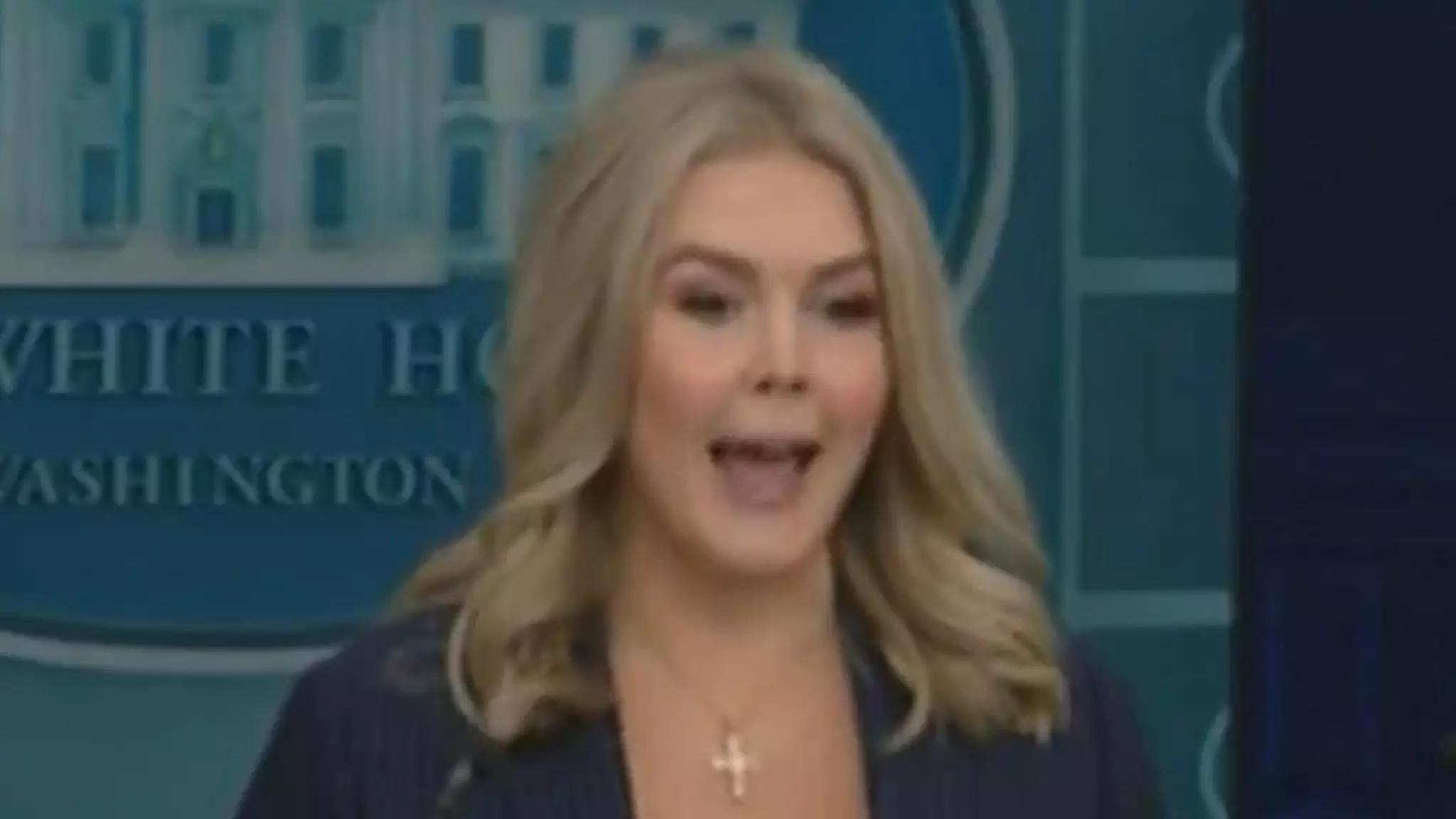In an era where information is disseminated faster than ever, the relationship between the media and the presidency becomes crucial. President Trump’s administration has recently taken an almost confrontational approach towards news outlets, emphasizing an unusual focus on language that has raised eyebrows across the political spectrum. Specifically, comments made by press secretary Karoline Leavitt during a recent briefing underscore a policy shift that hints at both intimidation tactics and a firm stance on terminology endorsed by the administration. This development could set a worrying precedent regarding how government agencies interact with the press.
The controversy surrounding the naming of the Gulf of Mexico—a trusted geographical term recognized globally—highlights what can appear to be an arbitrary decree by the Trump administration. When Leavitt chastised reporters for not referring to this significant body of water as the “Gulf of America,” it raised questions not just about semantics, but about the broader implications of executive power. This insistence on name change reflects a desire for control over narrative and language, and the implications of such control in democratic societies cannot be overstated. Moreover, it reveals an administration willing to prioritize small victories in the public relations arena while potentially undermining fundamental freedoms.
The underlying issue playing out in these confrontations is the First Amendment—an essential foundation of American democracy that protects freedom of speech and the press. Reporter Kaitlan Collins aptly questioned whether the administration intended to retaliate against those who grappled with these new linguistic requirements. Leavitt’s blunt affirmation is alarming and prompts a discussion on what constitutes acceptable conduct for the government concerning the press. When government officials begin to communicate threats about accountability for perceived misinformation, it raises red flags about the line between accountability and censorship.
This episode illustrates the challenges facing a democratic society when executive power oversteps its bounds. The insistence that media must conform to the government’s preferred lexicon is a slippery slope. The scenario resonates deeply with historical instances where authoritarian regimes have sought to control language as a means of exerting power. The disproportionate focus on a geographical name, while seemingly trivial, could easily lead to more critical issues where the administration asserts authority over reporting standards, press access, and ultimately freedom of the press itself.
As the Trump administration continues to navigate this contentious landscape, the media’s role assumes increased importance. Journalists are tasked not just with reporting but also with defending their autonomy and ensuring that the standards of transparency and truth are maintained. It is incumbent upon the press to resist becoming pawns in a political game that seeks to reshape reality. Incidents like the Gulf of America controversy remind us that vigilance and adherence to journalistic integrity are paramount in the fight for operational truths in a landscape rife with misinformation and executive overreach.
Ultimately, the relationship between media and government must be preservative rather than adversarial; without a healthy balance, the vibrancy of democracy runs the risk of becoming a casualty.

